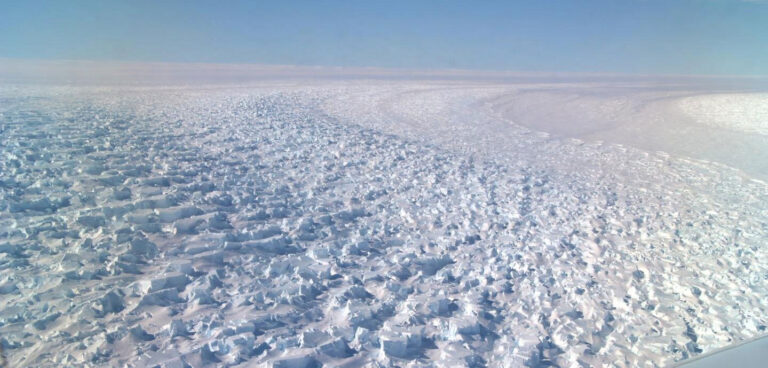The Denman Glacier in Antarctica has retreated almost three miles in 22 years, according to US researchers.
If fully thawed, the researchers from NASA’s Jet Propulsion Laboratory and University of California – Irvine (UCI) say worldwide sea levels could rise 1.5m (5ft).
The scientists have completed the most thorough examination of the glacier and surrounding area to date, uncovering clues about its condition under further global warming.
Eric Rignot, Donald Bren Professor and Chancellor’s Professor of Earth system science UCI, said East Antarctica was thought to be less threatened, but there is evidence of marine ice sheet instability in the region.
He said, “The ice in West Antarctica has been melting faster in recent years, but the sheer size of Denman Glacier means that its potential impact on long-term sea level rise is just as significant.”
Denman Glacier has lost 268 billion tons between 1979 and 2017. Radar interferometer data from the Italian Space Agency’s COSMO-SkyMed satellite system helped researchers determine Denman’s grounding line.
Virginia Brancato, postdoctoral fellow with JPL, said, “Differential synthetic aperture radar interferometer data from 1996 to 2018 showed us a marked asymmetry in the grounding line retreat at the ice sheet’s land-sea interface.”
The eastern flank is protected by a subglacial ridge, but the western flank is characterized by a deep and steep trough with a bed slope conducive to accelerated retreat.
Brancato said, “Because of the shape of the ground beneath Denman’s western side, there is potential for rapid and irreversible retreat, and that means substantial increases in global sea levels in the future.”



